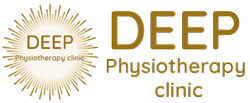
ADHD (Attention Deficit Hyperactivity Disorder) affects millions of people worldwide, both children and adults alike. While medication and therapy are the traditional treatments, the role of diet, nutrition, and exercise in managing ADHD is increasingly gaining attention. Proper nutrition and regular physical activity can make a significant impact on focus, energy, and overall well-being for individuals with ADHD.
In this blog, we’ll explore how what you eat and how much you move can influence ADHD symptoms, providing practical advice on what to include in your diet, what to avoid, and how exercise can play a key role in managing ADHD.
Nutrition Essentials for ADHD
When it comes to managing ADHD, nutrition can be a powerful tool. Certain nutrients fuel the brain, support cognitive function, and help regulate energy levels. Here’s a breakdown of essential nutrients to include in your diet:
1. Protein for Focus
Protein-rich foods are the backbone of a well-balanced diet, especially for individuals with ADHD. Proteins help produce neurotransmitters, such as dopamine, which are crucial for attention and focus.
- Plant-based options like lentils, beans, tofu, and tempeh are excellent choices. These foods not only stabilize blood sugar but also support brain function, helping to avoid the peaks and crashes that lead to hyperactivity or sluggishness.
- Animal-based sources like lean meat, chicken, eggs, and fish can also be beneficial but may not be suitable for everyone. For those following a plant-based diet, it’s essential to combine protein sources for a complete amino acid profile.
Tip: Include a good source of protein with every meal and snack. This helps keep your energy levels stable throughout the day.
2. Healthy Fats for Brain Health
Fat isn’t the enemy when it comes to ADHD. In fact, healthy fats are vital for brain development and function. Omega-3 fatty acids, in particular, play a crucial role in cognitive performance and emotional regulation.
- Avocados, nuts, seeds, and olive oil are fantastic sources of healthy fats that support brain health. These fats not only nourish the brain but also keep you feeling full and satisfied for longer, reducing the chances of impulsive snacking.
- Omega-3 rich foods like flaxseeds, chia seeds, and walnuts are particularly beneficial for those with ADHD. Studies suggest that Omega-3 fatty acids can reduce symptoms of inattention and hyperactivity in children and adults alike.
Tip: Incorporate sources of Omega-3s into your daily diet. A simple way is to sprinkle flaxseeds on your breakfast or snack on walnuts between meals.
3. Complex Carbs for Steady Energy
Carbohydrates are often misunderstood, but when chosen wisely, they provide the brain with a steady supply of glucose, its primary energy source. Complex carbs release energy slowly, helping to maintain concentration and avoid mood swings.
- Whole grains like brown rice, quinoa, oats, and whole wheat bread are excellent options for providing long-lasting energy. Unlike refined carbs, which cause a quick spike and crash in blood sugar, these complex carbs maintain a slow, steady release of energy.
- Fruits and vegetables also offer an array of vitamins, minerals, and antioxidants that help support cognitive function while providing fiber for better digestion.
Tip: Choose whole grains over processed carbs and include a variety of colorful vegetables and fruits to keep energy levels consistent throughout the day.
4. Boost Brain Power with Omega-3s
As mentioned earlier, Omega-3s are incredibly important for individuals with ADHD. These essential fatty acids are linked to improved brain function and emotional balance.
- Foods rich in Omega-3s like salmon, flaxseeds, and chia seeds are great additions to any diet. They help regulate neurotransmitters like dopamine and serotonin, which can improve focus, attention, and mood regulation.
Tip: If you’re not a fan of fish, try Omega-3 supplements like flaxseed oil or algae-based supplements, which are plant-based alternatives.
Foods to Avoid: Minimizing Hyperactivity Triggers
While certain foods can help manage ADHD symptoms, others may worsen them. Here’s what to avoid:
1. Sugary, Processed Foods
Foods high in sugar and refined carbs can cause rapid spikes in blood sugar, followed by crashes that lead to fatigue, irritability, and difficulty concentrating. These foods can aggravate symptoms of hyperactivity and make it harder to stay focused.
- Common offenders include candy, sugary cereals, soft drinks, and pastries. It’s best to limit these foods and replace them with healthier, nutrient-dense alternatives like fresh fruits, whole grains, and natural sweeteners like honey.
2. Artificial Colors and Preservatives
Certain artificial additives have been linked to increased hyperactivity in children with ADHD. Artificial colors, particularly those found in candy, sugary drinks, and some processed snacks, have been shown to exacerbate ADHD symptoms in some children.
- Preservatives like sodium benzoate, often found in soft drinks, pickles, and sauces, can also have a negative impact on behavior. Always check ingredient labels and opt for whole, minimally processed foods.
Tip: When shopping for food, look for products free from artificial additives and opt for natural, whole foods whenever possible.
Exercise is Key for ADHD Management (Especially for Kids)
For kids with ADHD, exercise is more than just a way to burn off energy—it’s a powerful tool for improving focus, behavior, and mood. Physical activity increases dopamine, norepinephrine, and serotonin levels in the brain, all of which help boost attention and reduce impulsivity.
1. Movement for Focus and Self-Control
Experts recommend that children with ADHD get at least 60 minutes of physical activity every day. Engaging in activities they enjoy can help improve self-discipline and concentration.
- Activities like bike rides, dancing, and outdoor play can make exercise feel fun and exciting rather than a chore. These activities encourage spontaneous movement, which helps children with ADHD improve their motor skills and spatial awareness.
- Team sports like soccer, basketball, or volleyball are great for developing social skills, while providing structure and focus during playtime.
Tip: Make exercise fun! Encourage kids to find activities they love, whether it’s martial arts, swimming, or just playing outdoors. When they enjoy the activity, they’re more likely to stick with it.
2. Structured Activities for Discipline
Structured activities like martial arts, yoga, or dance classes offer more than just physical benefits. They promote mindfulness, body awareness, and self-discipline, which are all helpful for managing ADHD.
- Martial arts, for example, emphasizes respect, focus, and control, which can help kids improve their behavior both inside and outside of class.
- Yoga offers relaxation techniques that can calm a hyperactive mind, helping to reduce anxiety and improve attention.
Tip: Try incorporating structured activities into your child’s routine to develop better focus, self-control, and social interaction skills.
Conclusion: Consistency is Key
Managing ADHD through diet, nutrition, and exercise is about finding a balance that works for the individual. By incorporating nutrient-dense foods, avoiding triggers, and encouraging daily physical activity, you can help boost focus, energy, and overall well-being.
Pro Tip: The key to success is consistency. Fuel the body with the right nutrients, avoid harmful foods, get moving, and watch the transformation!


